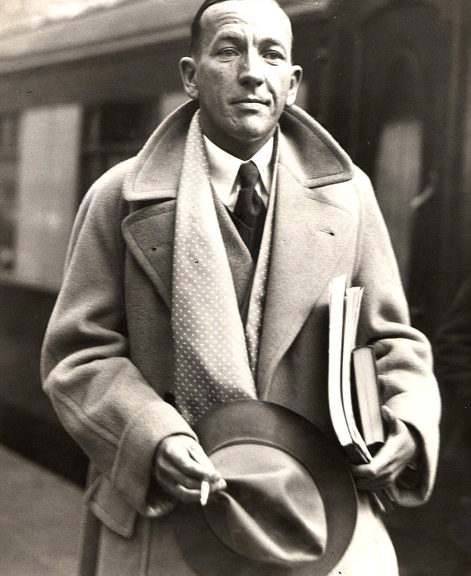NOEL COWARD, English composer and playwright died (b. 1899); All I can say is run, don’t walk, to your local bookstore, and buy The Letters of Noel Coward, Barry Day (Knopf/ISBN-10: 0375423036. A fascinating, sharp and prolific mind.
Coward was Gay and never married, but he maintained close personal friendships with many women. These included actress and author Esme Wynne-Tyson, his first collaborator and constant correspondent; the designer and lifelong friend Gladys Calthrop; secretary and close confidante Lorn Loraine; his muse, the gifted musical actress Gertrude Lawrence; actress Joyce Carey; compatriot of his middle period, the light comedy actress Judy Campbell; and (in the words of Cole Lesley) ‘his loyal and lifelong amitié amoureuse’, film star Marlene Dietrich.
He was a valued friend of Vivien Leigh, Gene Tierney, Judy Garland, Elaine Stritch, Princess Margaret and Queen Elizabeth the Queen Mother. He was a close friend of Ivor Novello and Winston Churchill.
Coward’s insights into the class system can be traced back to London life in World War I, when thousands of troops passed through the capital every day, and gay officers and other ranks met civilians in dozens of highly secret clubs.
He enjoyed a 19-year relationship with Prince George Duke of Kent and another lengthy one with the stage and film actor, Graham Payn, for almost 30 years until his death. Payn later co-edited with Sheridan Morley the collection of his diaries, published in 1982. He was also connected to composer Ned Rorem, with details of their relationship published in Rorem’s diaries.
A man and no less a product of his times (and his own imagination, to be sure) and exquisitely attuned to those times, Coward refused to acknowledge his sexuality, wryly stating, “There is still a woman in Paddington Square who wants to marry me, and I don’t want to disappoint her.” From his youth Coward had a distaste for penetrative sex and held the modern gay scene in disdain. This disdain, we have to believe is merely a symptom of an era, rather than a matter of character, and something he would have rethought had he been born in another time. His evident innate sense of honor and what is right would have, one has to infer, brought him around.
